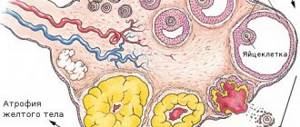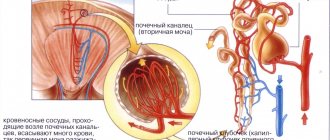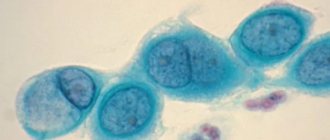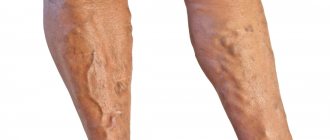Today we will raise an extremely important topic regarding women's health - hormonal imbalance. It's no secret that the life of a modern woman passes at an accelerated pace, as a result of which there is practically no time left to monitor her health. And when we begin to notice symptoms such as poor sleep, dry skin, split ends, we rarely pay due attention to them, attributing them to eternal fatigue, inappropriate cosmetics or poor ecology. In reality, such symptoms may indicate more serious health problems, including hormonal imbalance.
It is important to remember that emotional or physiological changes in the female body can be generated by “jumps” of hormones. That is why it is important to pay special attention to this issue - then women’s health, her reproductive abilities and mood will be in perfect order. How hormonal disorders manifest themselves, what their causes and methods of treatment are, we will reveal in our article today.
What is hormonal imbalance
Just a few years ago, doctors and people associated the phrase “hormonal imbalance” exclusively with women’s problems associated with menstrual irregularities. But today more and more attention is being paid to the general endocrine system, because it affects not only sexual function and the ability to conceive, but also all other aspects of human life. Experts started talking about male menopause, which, like female menopause, can have similar symptoms and provoke early osteoporosis and cardiovascular diseases.
Simply put, hormonal imbalance is a violation of the ratio of hormones, a decrease or increase in their quantity, which one way or another leads to disruptions in the functioning of many internal organs and systems, including the nervous system. Endocrine dysfunction is a real disaster. Hormones affect our mood, physical activity, and the functioning of the heart and blood vessels. Biologically active substances literally save us: the production of certain sex hormones protects against stroke, heart attack, atherosclerosis and osteoporosis. Therefore, sudden hormonal disruption during menopause in women and men is considered especially dangerous.
But if you understand this issue, understand what hormonal imbalance is, what its symptoms and complications are, you can avoid adverse health consequences.
Hormonal imbalance also increases the risk of growth of hormone-dependent tumors, including malignant ones. But timely treatment allows you to restore lost balance and avoid complications.
Next, I will tell you in detail how an ordinary person can understand that he has problems with hormones.
What can a hormone imbalance lead to?
An imbalance of hormones disrupts the functioning of all organs and systems of the body. If the cause of the disorders occurring in the body is not identified in a timely manner, this can lead to various complications:
- Obesity
- Diabetes
- Atherosclerosis
- Osteoporosis
- Infertility
- Decreased sexual function
- Neoplasms
- Fibrocystic formations in the breast
- Miscarriage
In many cases, hormonal disorders are observed after 40 years. However, young girls and women of reproductive age are increasingly affected. Therefore, special attention should be paid to any changes occurring in the body in order to avoid possible serious complications.
How to understand that there is something wrong with your hormones
The human body has powerful self-regulation and recovery mechanisms. They work without drugs, but, as they say, up to a certain point. For some time, there are no symptoms of hormonal imbalance in women and men. But then, anyway, disturbances in the functioning of the hormonal system will make themselves felt.
Common symptoms of hormonal imbalance for women and men:
- instability of the psycho-emotional state: even a slight hormonal imbalance has a negative effect on the nervous system, which manifests itself in frequent mood swings, irritability, lack of harmony, and reluctance to communicate with people;
- decreased libido: hormonal imbalance in women and men primarily affects sexual behavior and reproductive capabilities, manifested by decreased libido, problems with potency, cycle disorders and lack of interest in the opposite sex;
- increased body weight, improper distribution of fat: in men with hormonal imbalance, fat deposits begin to be deposited in the area of the mammary glands, abdomen and back; in women, signs such as a deepening of the voice, an increase in the amount of hair on the body and face may appear;
- loss of interest in career growth and self-development: sex hormones greatly influence a person’s leadership qualities, especially in men, and with a hormonal imbalance, a person becomes inactive, indifferent, and stops striving for something more;
- skin problems: one of the signs of hormonal imbalance can be considered a deterioration in the condition of the skin when acne, enlarged pores suddenly appear, and the activity of the sebaceous glands increases;
- dry mouth, excessive urination and constant thirst: these signs may indicate the development of diabetes mellitus and other endocrine pathologies;
- lack of pregnancy, reproductive disorders: hormonal imbalance always affects reproduction, leading to impaired spermatogenesis in men, ovarian dysfunction in women and infertility;
- problems with joints and the cardiovascular system: in women and men, sex hormones play a protective role, preventing the development of musculoskeletal pathologies and heart disease, the occurrence of fractures and dislocations.
In this video, a specialist explains under what signs it is necessary to donate blood for hormones and how to do it correctly.
Causes
The causes of this disorder in women and men may be different. Women face this problem for a natural reason - at the onset of menopause, when the female body begins to produce sex hormones in smaller quantities. And in girls, hormonal imbalance develops during puberty, when the body shifts to perform its reproductive functions. Sometimes teenage hormonal imbalances last a long time, and hormone production returns to normal only after pregnancy and childbirth.
Conception, gestation and birth of a child also cause such disturbances in the body. Hormonal imbalance after childbirth leads to young women rapidly gaining, or, conversely, losing weight. As a rule, such a disorder normalizes on its own over time, but if the hormones do not return to normal even after the woman has stopped breastfeeding, medical attention is required.
And women experience not only hormonal disruption after childbirth, but also after abortion, since during the process of conception the body is rebuilt and prepared for bearing a baby, and when the pregnancy is terminated, it is difficult for it to adapt to new conditions, as a result of which hormonal imbalance develops.
The constant stress that a modern woman is exposed to can also cause this disorder. This is why in modern society so many women suffer from hormonal imbalance, because today the fair sex leads the same active life as men, being exposed to stress and solving complex problems.
Other reasons for the development of such a disorder include:
- unhealthy diet, with a predominance of fatty, fried, smoked foods, as well as foods rich in hormones (chicken meat and others);
- poor lifestyle and lack of sufficient physical activity;
- excess weight;
- pathologies of the female sphere, as well as common viral and bacterial diseases;
- taking oral contraceptives;
- excessive physical activity.
If we talk about hormonal imbalance in men, then completely different reasons lead to this pathological condition. In particular, possible causes include congenital or acquired disorders of the endocrine glands, injuries, infections or tumors of the gonads, as well as the toxic effects of alcohol, tobacco, and drugs on the body of representatives of the stronger sex. In older men, the cause of the disorder may be androgen deficiency associated with the natural aging process of the body.
Adolescence is also a critical age for men in terms of hormonal changes in the body, and therefore background disturbances often appear during this period.
Hormonal disorders in women
Unlike men, the ratio of sex hormones in women changes during the menstrual cycle. This partly explains the instability of the psycho-emotional state and the peculiarities of the functioning of the female nervous system. Signs of hormonal imbalance in women can be smoothed out, depending on the underlying cause of the disorder.
But if you pay attention to your condition, you may notice the following changes:
- irregular menstruation, changes in the volume and duration of menstrual bleeding;
- increased signs of premenstrual syndrome, which manifests itself as lethargy, headaches, tearfulness, irritability and apathy;
- the appearance of acyclic uterine bleeding;
- an increase in the amount of hair on the face and body, in particular above the upper lip;
- delay of menstruation for several months (in the absence of pregnancy);
- increased abdominal pain before and during menstruation;
- exacerbation of joint diseases, the appearance of sudden dislocations and fractures;
- development of cardiovascular diseases;
- increased sweating, hot flashes to the face and body.
The cause of hormonal imbalance in women may be early menopause. It dramatically increases the risk of developing osteoporosis, atherosclerosis, stroke and myocardial infarction. If presumptive signs of hormonal imbalance appear in women after 30 years of age or even earlier, go to a gynecologist or endocrinologist.
Hormonal imbalance in girls and women of active reproductive age is dangerous for the development of infertility. Often the problem occurs against the background of concomitant endocrine disorders (diabetes mellitus, obesity, thyroid disease). Also, the cause of hormonal imbalance may be associated with inflammatory processes in the pelvic area, unsuccessful abortions.
The female body reacts sensitively to not only internal, but also external factors. Experts know of cases where symptoms of hormonal imbalance in women appeared against the background of signs of depression, problems in their personal lives and professional activities. Even frequent travel from a changing climate zone can provoke a violation. But only a doctor who studies the medical history and diagnostic results can say exactly why hormonal imbalance occurs in women.
Diet and hormones
People who are addicted to diets, limit certain foods in their diet and sharply reduce the caloric content of food, are at risk for hormonal imbalance. A balanced diet plays a huge role in maintaining human health. Any costs and distortions in one direction or the other can fail.
The production of many sex hormones occurs with the participation of fats. By refusing fatty foods, women doom themselves to hormonal imbalance, which can result not only in the cessation of menstruation, anorexia, but also in irreversible infertility. A sharp reduction in calories and fat undermines the entire endocrine system. Diets for hormonal imbalance in women are contraindicated. You need to eat a varied diet, with the obligatory inclusion of moderate amounts of fats, proteins, carbohydrates and other nutrients.
Hormonal disorders after abortion and childbirth
Hormonal imbalance after childbirth can be triggered by birth injuries and the presence of chronic diseases of the endocrine system. In most cases, a woman’s body recovers within several months without any medications. Special treatment is required only in case of diseases of the ovaries and uterus, endocrine pathologies.
Often, symptoms of hormonal imbalance in a woman’s body appear after an abortion. Abortion intervention involves the abrupt termination of pregnancy. The body has to suddenly rebuild itself, which leads to failure. To restore the functioning of the hormonal system, it is necessary to undergo a comprehensive examination and consult a gynecologist.
Necessity of medical consultation
https://www.youtube.com/watch?v=6vuoePks1iM
For each woman, treatment for hormonal disorders is individual and can only be prescribed by a doctor; self-medication can cause serious health problems and only aggravate the condition. One woman may take medication for only a few days, while another may need to take medication for an extended period of her life.
The human body is a very delicate mechanism that must be maintained “in working order” through the efforts and efforts of a person. Monitoring the behavior of your body, regular medical examinations, a healthy lifestyle, a balanced diet and timely diagnosis and treatment of diseases are the best ways to take care of your health.
Hormonal disorders in men
Despite the relative constancy of the level of sex hormones in men, hormonal imbalance is also possible in them. Common causes of such disorders are endocrine diseases and pituitary tumors. Often, the prerequisites for the appearance of symptoms of hormonal imbalance in men appear several years in advance. By middle age, many representatives of the stronger sex stop playing sports and actively gain weight, especially in the abdominal area, which indicates a sharp decrease in testosterone production. This leads to loss of libido and sexual dysfunction.
Promote hormonal disorders of vitamin deficiency. To maintain libido and high-quality spermatogenesis, you need foods rich in magnesium, zinc, iodine, as well as an optimal amount of healthy protein, which is best obtained from lean meat (rabbit, chicken breasts, veal, sea fish).
Hormonal drugs
Hormonal imbalance in women can be caused by the use of hormonal drugs, most often oral contraceptives, if they are selected incorrectly. The main hormones in the female body are estrogen and progesterone, produced by the sex glands. These are hormones that are responsible for a woman’s reproductive function, her source of beauty: the condition of hair, nails, skin, sexual desire. Estrogen and progesterone are closely related, and disruption of their balance leads to serious problems. Women who previously used oral contraceptives and stop doing so often experience hormonal disorders, as the level of production of female hormones by the sex glands changes.











